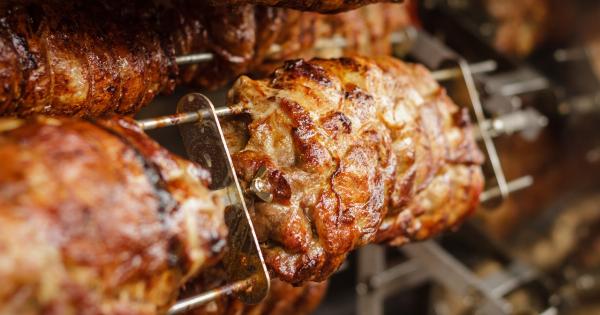Food is a basic necessity for life, but it can also become a source of stress and anxiety for many people. When your relationship with food becomes unhealthy, it can impact your physical and mental health. Here are 10 red flags to watch out for.
1. Obsessive Food Thoughts
Do you constantly think about food, what you’re going to eat next, and how many calories you’re consuming? Obsessive thoughts about food are a sign that your relationship with food is unhealthy.
2. Restrictive Dieting
Restrictive dieting is a common behavior for those with an unhealthy relationship with food. It involves severely limiting the types and amounts of food you consume in an effort to lose weight.
This often leads to nutrient deficiencies and can be dangerous for your health.
3. Binge Eating
Binge eating is a cycle of overeating followed by feelings of guilt and shame. If you frequently consume large amounts of food in a short period of time, you may have an unhealthy relationship with food.
4. Eating in Secret
Do you hide your food or eat in secret? This behavior is a sign that your relationship with food is not healthy. It can be a sign of shame or guilt around food consumption.
5. Emotional Eating
Emotional eating is using food to cope with difficult emotions such as stress, anxiety, or depression. If you often turn to food for comfort, you may have an unhealthy relationship with food.
6. Feeling Out of Control Around Food
Feeling out of control around food is a sign that your relationship with food is not healthy. This can happen when you feel like you can’t stop eating or when you have intense cravings for specific types of food.
7. Constantly Checking Your Weight
Do you weigh yourself multiple times a day? Constantly checking your weight is a sign that your relationship with food is not healthy. Weight fluctuations are normal, and obsessing over them can be detrimental to your mental health.
8. Feeling Guilty After Eating
Feeling guilty after eating is a sign that your relationship with food is not healthy. Guilt can lead to restrictive dieting or overeating, which can further damage your relationship with food.
9. Using Food as a Reward or Punishment
Using food as a reward or punishment reinforces unhealthy patterns around food. If you use food as a way to reward or punish yourself, it’s a sign that your relationship with food is not healthy.
10. Avoiding Social Situations That Involve Food
If you avoid social situations that involve food, it may be a sign that your relationship with food is not healthy. This can lead to social isolation and further reinforce negative patterns around food.
























